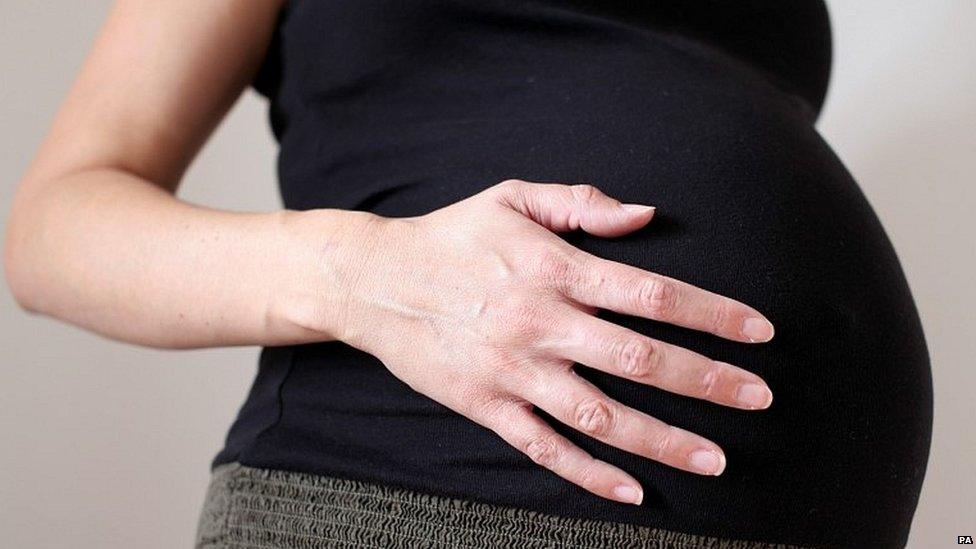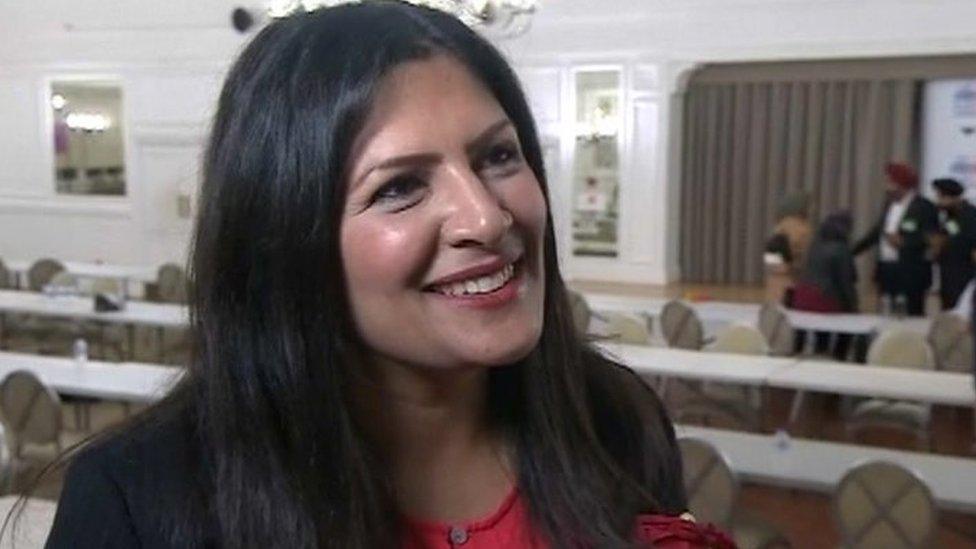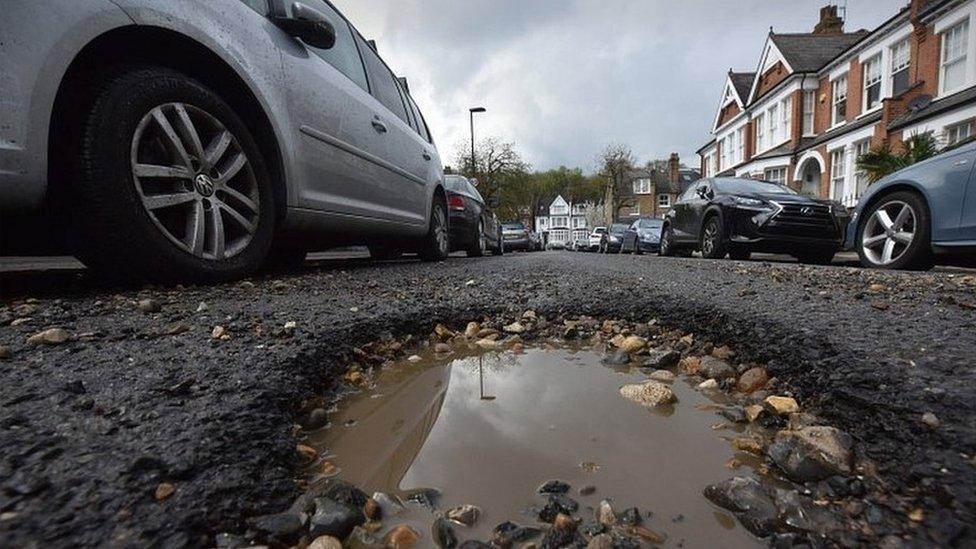Sexism going 'unchallenged' in local councils claims report
- Published

Only 4% of English councils have formal maternity or paternity leave policies
Sexism and discrimination is widespread in local government and often goes "unchallenged", a new report claims.
Councils in England and Wales were said to be male dominated, with women and ethnic minorities under-represented.
The Fawcett Society and Local Government Information Unit, external recommend statutory maternity leave, funding childcare and allowing councillors to attend and vote remotely.
Councils said "faster progress" was needed, without "imposing structures".
The report, which draws on online surveys, feedback from public meetings and interviews with female council leaders, concluded that local government in England and Wales was "stuck in the past".
Among its headline findings are that one in three local councillors are female, women account for just 17% of top council jobs while men outnumber women by six to one in terms of jobs in finance and resources departments.
While women make up 78% of the local authority workforce, they account for just a third of chief executives. Of the 35 county, unitary and metropolitan councils in England that had elections in May, only two of them - Oxfordshire and Durham - elected more than 40% women.
In Wales, female representation was below 20% in Blaenau Gwent, Ceredigion, Merthyr Tydfil, Newport, Pembrokeshire, Wrexham and Anglesey.
The report identifies significant barriers to entry for women, particularly those with young children and caring responsibilities. Of the 353 councils in England, only 4% have any kind of maternity, paternity or parental leave policy in place.
'End this scandal'
While the report found some councils have informal arrangements for their elected officials, many of whom are unpaid volunteers, it had learnt of "unacceptable" stories of women being told they would lose their cabinet positions if they became pregnant.
"We call on government to introduce a nationwide policy and end this scandal," it said.

Councillors from ethnic minorities face frequent discrimination, the report suggests
Councillors are not paid a formal salary but they are given allowances to compensate them for their time spent on council business, varying from a couple of thousand pounds a year to £20,000 or more.
The report calls for councils in England to offer a year's maternity leave or shared parental leave to councillors, in line with that available to direct employees, with the guarantee that officials would not be discriminated against for not attending a meeting for six months.
Cabinet officers with executive responsibilities, who often manage multi-billion pounds budgets, should retain all their allowances while on leave.
The Fawcett Society said the paucity of women of child-bearing age currently in executive positions meant the cost of the policy would not be huge and even if half of all council leaders were women and took 12 months off, it would cost about £3.8m.
Among the report's other recommendations are:
Law should be changed to allow councillors to participate in meetings and vote via Skype and other platforms
There should be a comprehensive dependent carers allowance for councillors
Without voluntary progress on diversity by next election, a 45% quota for female candidates should be introduced
All senior council roles should be offered as flexible or part-time
More financial support for disabled councillors
The report suggests that many councils have working cultures reminiscent of the 1970s where sexual harassment goes "unchallenged and unchecked". Codes of conduct, are needed, to address sexism and discrimination with proper complaints and disciplinary procedures, it says.
Its findings were described as "shocking" by Labour MP Dame Margaret Hodge, a former leader of Islington Council who co-chaired a year-long investigation into the issue of female participation funded by the Barrow Cadbury Trust, whose work informed the report.
She said: "The way councils do business is still designed by, and for, men. This needs to change and fast."
'Going backwards'
The Fawcett Society said at current rates of progress, it would take about 50 years to secure gender equality in county councils while the picture was scarcely better in the combined authorities created since 2011.
"We are going backwards and that is fundamentally unacceptable in the 21st Century," said its chief executive Sam Smethers.
But the Local Government Information Unit said there was good practice in many councils which needed to be adopted more widely.
The Local Government Association, which represents more than 300 councils in England and Wales, said it was supporting a range of initiatives to encourage women and other under-represented groups to become involved in local politics.
LGA vice chair Marianne Overton said the report "rightly identifies that progress must be made at a faster pace".
She added: "Local government must be at the forefront of driving change, but it will be important to get the balance right between changing culture and imposing structures.
"Change will also require all political parties, no matter the colour of their rosette, to fully engage and support a wide range of aspiring councillors."
- Published10 June 2017

- Published4 July 2017

- Published6 March 2017
